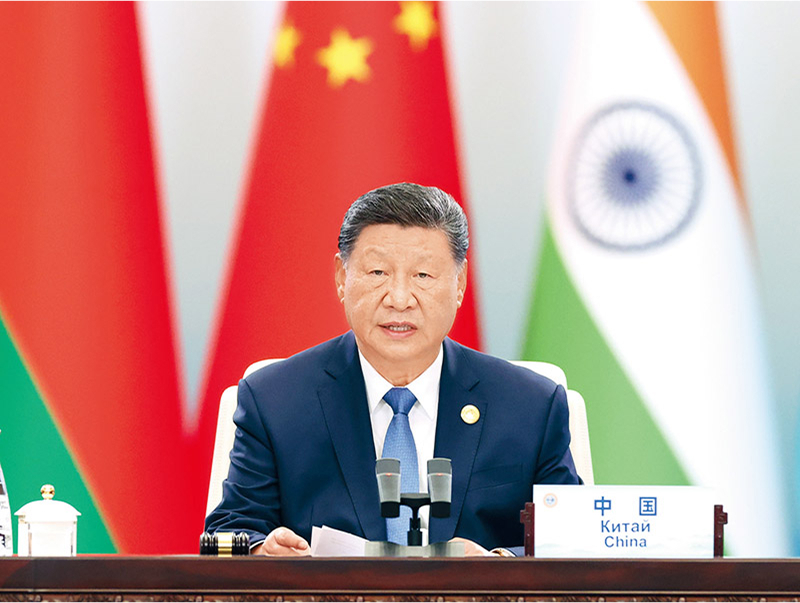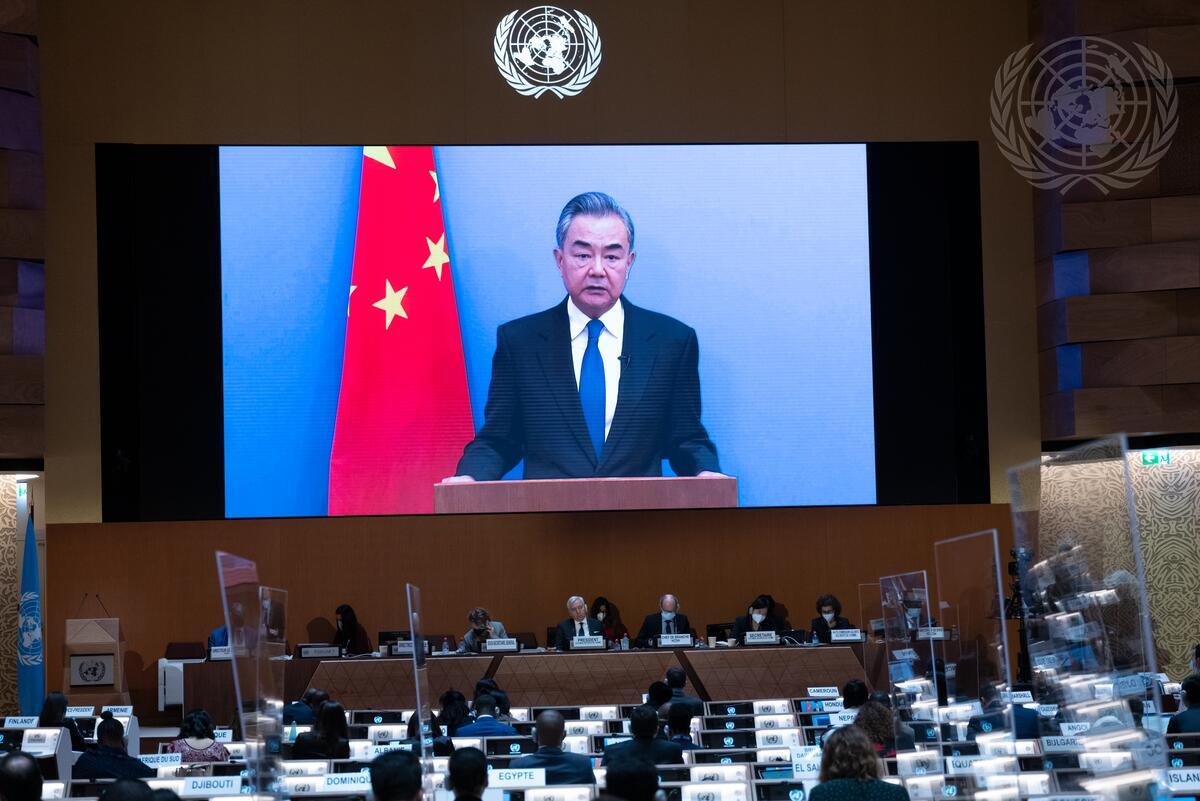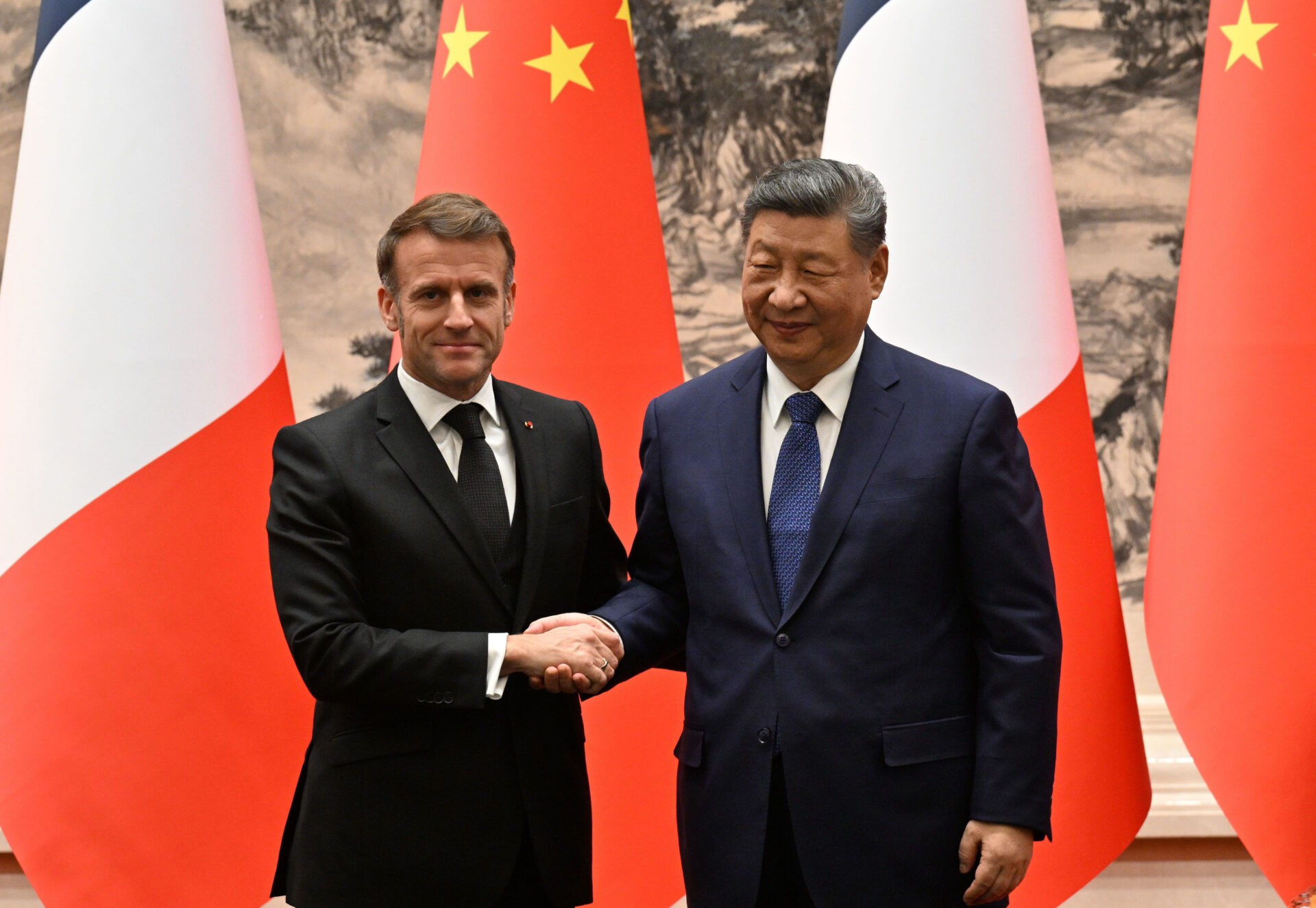
Forecasting the PRC’s Next Global Initiative
Executive Summary:
- Xi Jinping could unveil a “global environmental initiative” as soon as mid-November 2025, at the COP31 summit in Brazil. This would align with previous initiatives that have been announced at international forums.
- This new initiative would complete a set of five that matches the five strands in the initial rubric of the “Community of Common Destiny” concept, Beijing’s framework for a new approach to global governance.
- The PRC will likely leverage a global environmental initiative and its significant economic advantages in green energy to expand international acceptance of their alternative global governance model.
Since 2021, the People’s Republic of China (PRC) has announced a string of global initiatives that it has billed as providing “Chinese solutions” (中国方案) to reform the global governance system (Chinese People’s Institute for Foreign Affairs [CPIFA], April 2024). These include initiatives on development, security, civilization, and governance (China Brief, September 6, 2024, January 17, October 31). According to the Ministry of Foreign Affairs (MFA), they have focused on “promoting international cooperation on development, encouraging dialogue and consultation over international discord, promoting exchanges and mutual learning among civilizations, and anchoring the direction, principles, and path of the global governance system and mechanism reform” (推动国际发展合作,着眼对话协商解决国际争端,促进文明交流互鉴,锚定全球治理体制机制改革的方向、原则和路径) (MFA, September 1).
The four initiatives announced to date align with four of the five lines of the Community of Common Destiny (CCD; 人类命运共同体), the overarching framework of the Chinese Communist Party (CCP) for reforming global political, security, development, culture, and environment policy (Texas National Security Review, November 2018; The Asan Forum, May 7). Combined, these initiatives give the PRC a codified approach to achieving CCD objectives.
The fifth line of the CCD concerns global environmental policy. The Party is yet to announce a “global environmental initiative” (全球环境倡议), but analysts should expect the launch of one soon. Previously, Beijing has maintained a rhythm, releasing one new initiative each year. Although it has already announced a Global Governance Initiative in 2025, it could announce an environmental initiative as soon as mid-November at the United Nations Climate Change Conference (COP 30) in Brazil (UN, accessed October 24).
CCP General Secretary Xi Jinping has announced all previous global initiatives during major speeches at international events. Xi has not attended a COP since 2015 and is not currently scheduled to attend COP 30. This year’s event will be held in Brazil, a BRICS nation, making it a symbolic location to launch an initiative leading developing nations in a new push for global governance. Even if Xi does not appear in person, he could make the announcement by video as he did with the Global Security Initiative in 2023. A 2024 white paper titled “China’s Energy Transition” (中国的能源转型) highlights that the PRC is working with other countries to “establish a … global energy governance system” (建立 … 全球能源治理体系) (State Council, August 29, 2024).
Rhetorical Leadership Obscures Emissions Record
This year could be a good year to release a “global environment initiative,” as the PRC’s economic problems could lead to it decreasing emphasis on environmental issues in future. Analysts have already criticized the country for a lack of ambition in recent weeks (Asia Society, September 24; Climate Action Tracker, accessed November 6).
The significant role of green energy in the PRC economy indicates that it has an interest in guiding global environmental policy to ensure long-term reliance on PRC manufacturing. Clean energy sectors constituted 25 percent of the country’s GDP growth in 2024 and 40 percent in 2023 (Carbon Brief, January 25, 2024, February 19). As on 2023, the country already accounted for more than 80 percent of global solar cell exports, 50 percent of lithium-ion batteries, and 20 percent of electric vehicle manufacturing (Dialogue Earth, November 7, 2023). It is doubtful that the PRC will pivot from the green economy, particularly in a period of slowing economic growth.
Contradictions exist in the PRC’s approach to clean energy. Despite the country’s accomplishments, it remains the world’s largest greenhouse gas emitter, constituting over 30 percent of global output (France 24, April 11). Its total renewable energy capacity is over 1800 Gigawatts (GW), but it still only accounts for 35 percent of the country’s electricity generation due to issues with grid connectivity, insufficient storage, and transmission inefficiencies (Department of Commerce, September 25). The PRC also remains wedded to coal. It is the world’s top producer and consumer of the fossil fuel (Energy Information Administration, May 19). In 2024, construction started on 95 GW of new coal power capacity, accounting for 93 percent of new global coal-powered construction (Carbon Brief, August 12).
Figure 1: PRC CO2 Emissions Continue to Rise Dramatically

(Source: Our World In Data, 2024)
Creating a global environmental initiative would demonstrate the PRC’s desire to leverage its economic advantage in green energy to expand influence, particularly among developing countries, and to seed global norms that promote its new global governance agenda under the umbrella of the CCD. In 2024, Special Envoy for Climate Change Liu Zhenmin (刘振民) argued that the international community’s confidence and input in the prospect of global climate governance “has decreased.” He argued that the PRC can offer “global climate governance featuring Chinese characteristics” (中国特色全球气候治理), and emphasized the PRC’s CCD, stating that addressing climate change “requires commitment to the [CCD]” (要坚持人类命运共同体) (CPIFA, April 2024).
Conclusion
The world’s energy demands are set to rise as populations increase, people become wealthier, and artificial intelligence diffuses throughout societies (International Energy Agency, April 10). But the PRC’s model for energy growth and governance is unlikely to meet global needs. Instead, a putative global environmental initiative will continue to fuel the PRC’s green energy industry along with other countries’ dependence on it. Simultaneously, the PRC will leverage that industry to increase its international influence and shift global norms to fit its preferences. As more countries sign on to the CCD, their fates increasingly will be dictated by Beijing.

